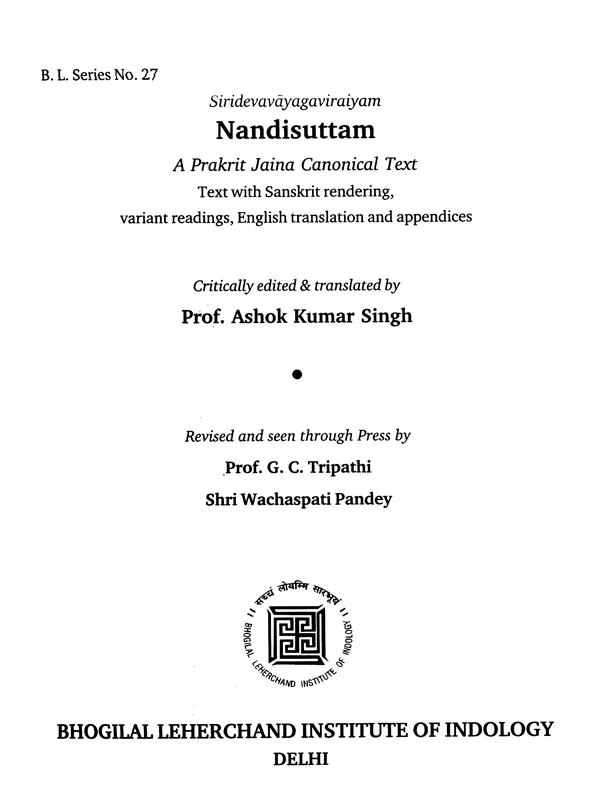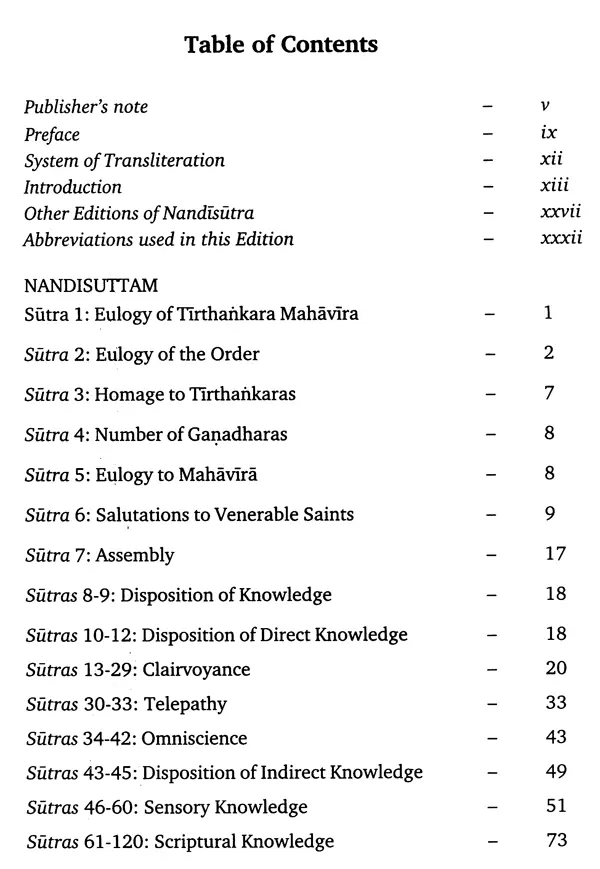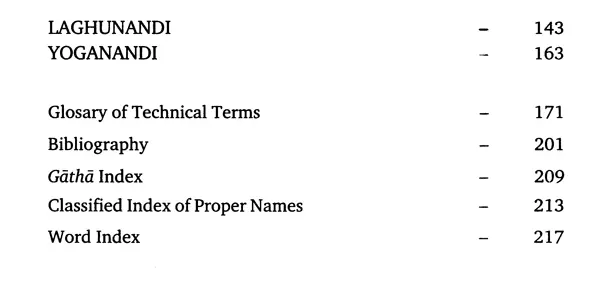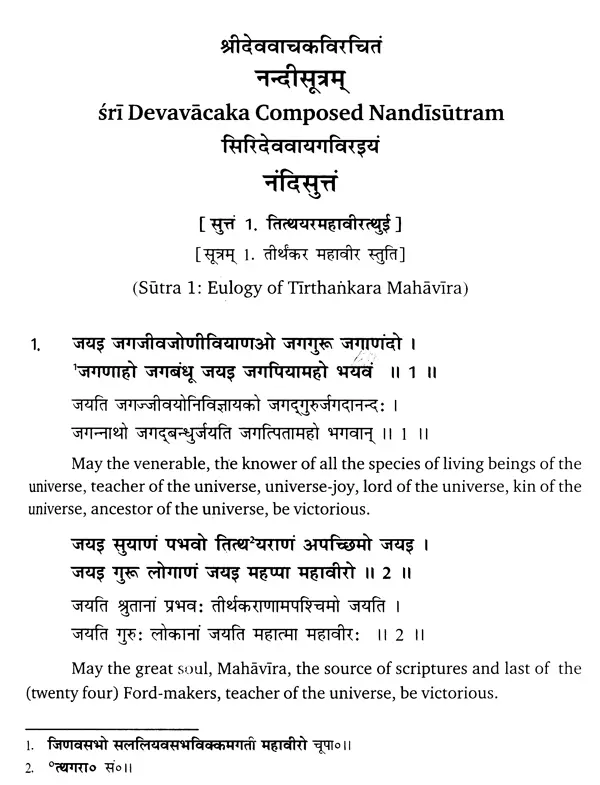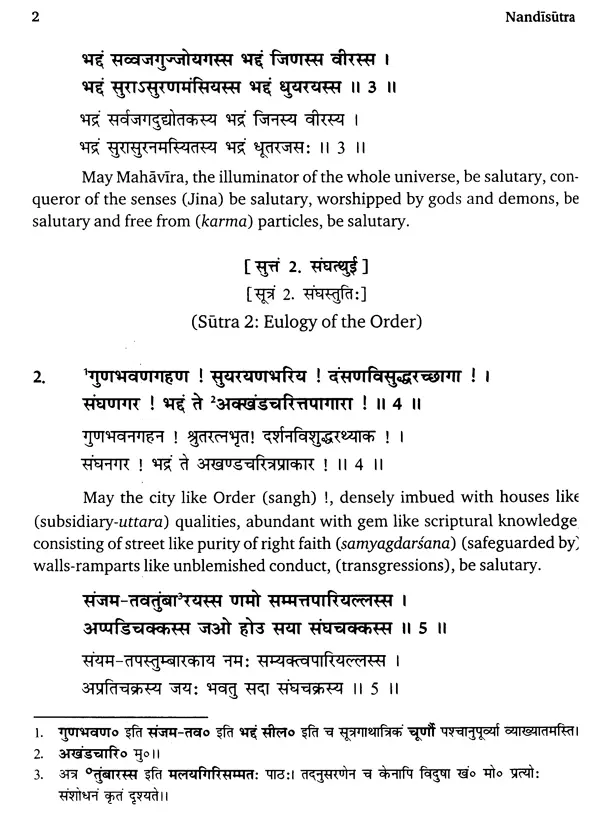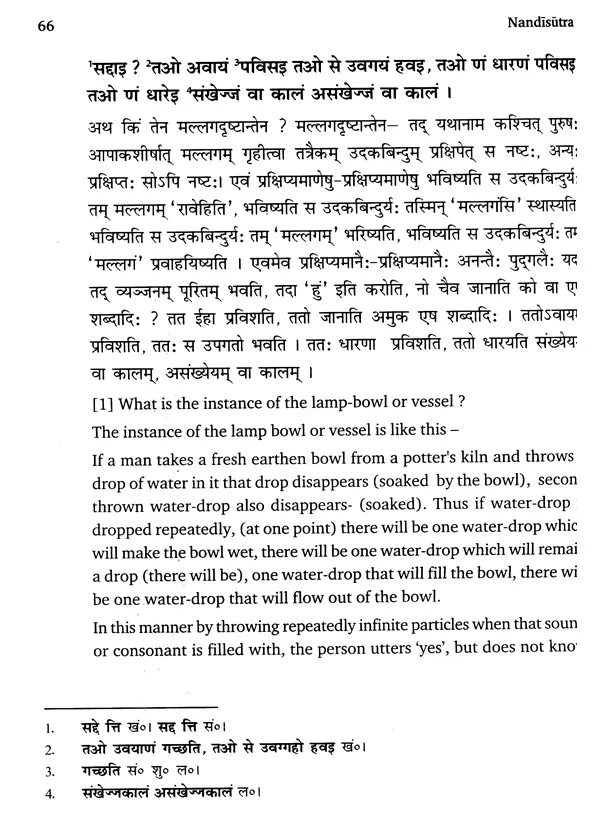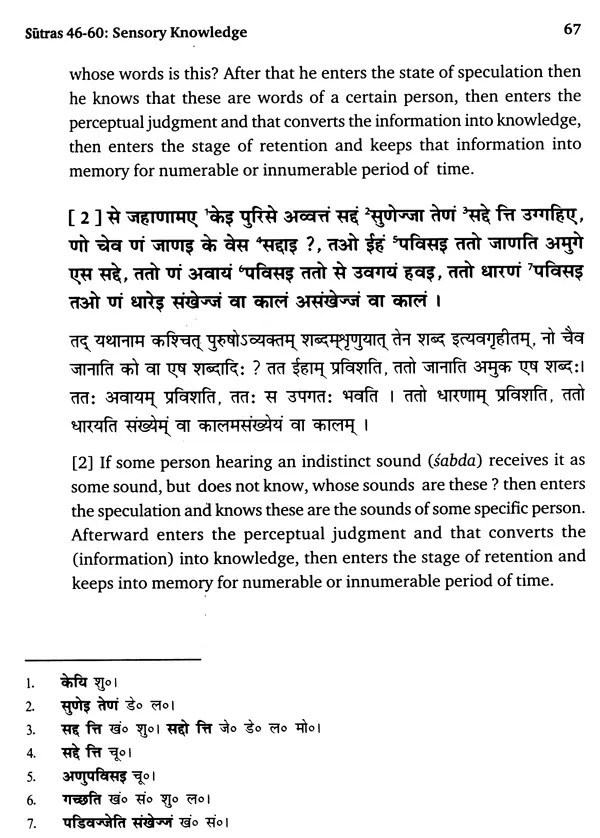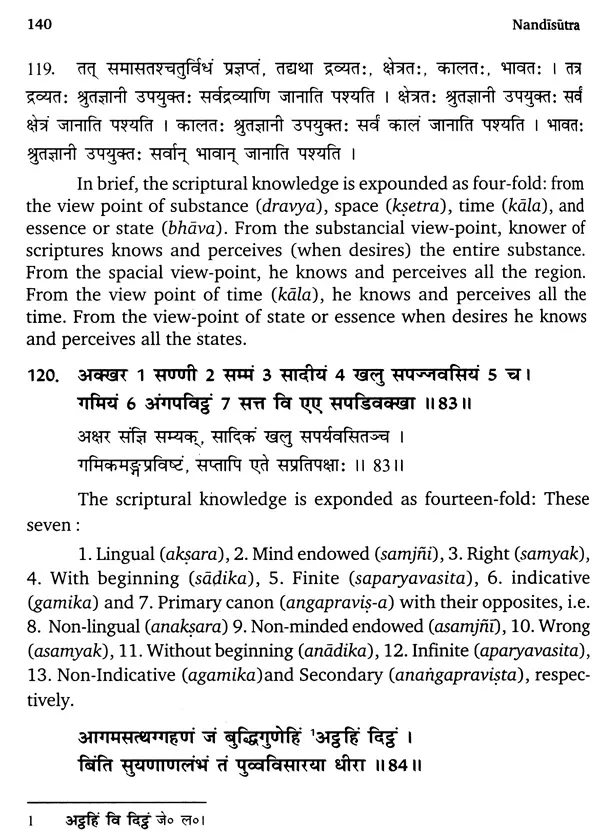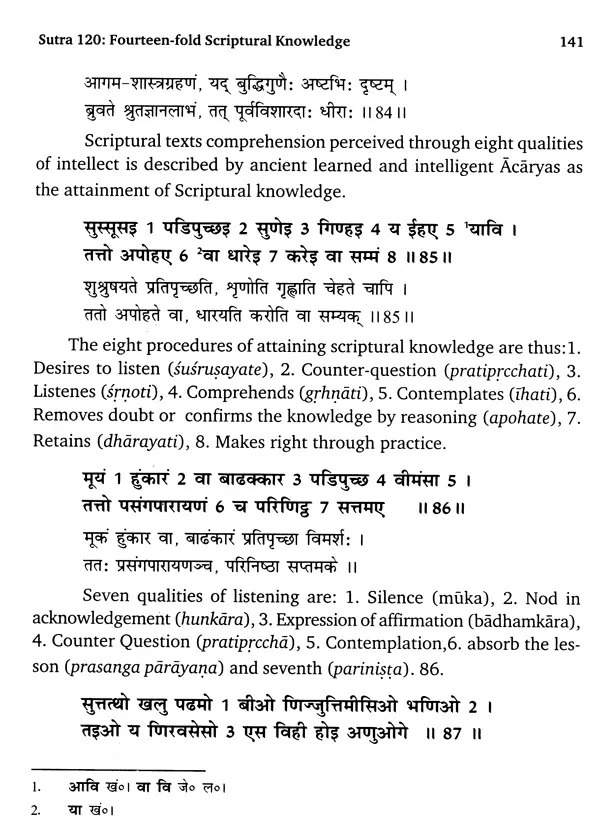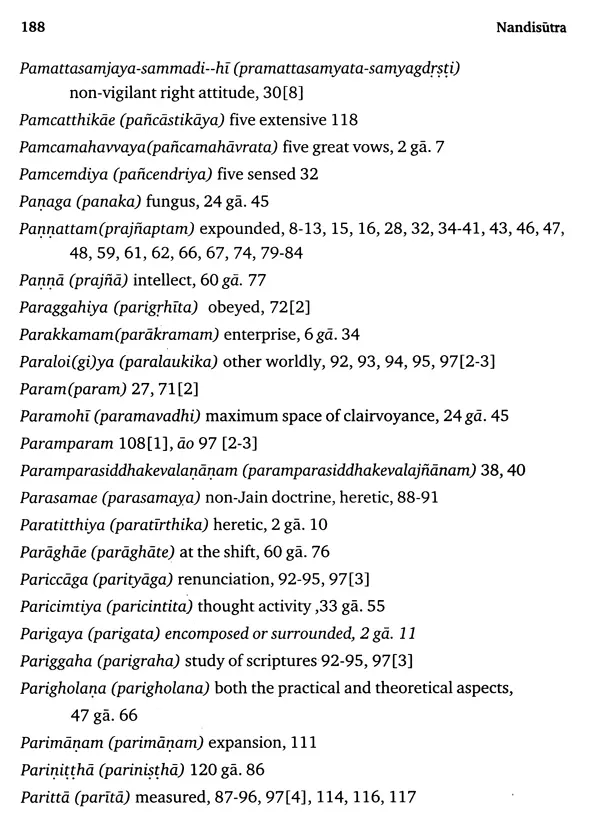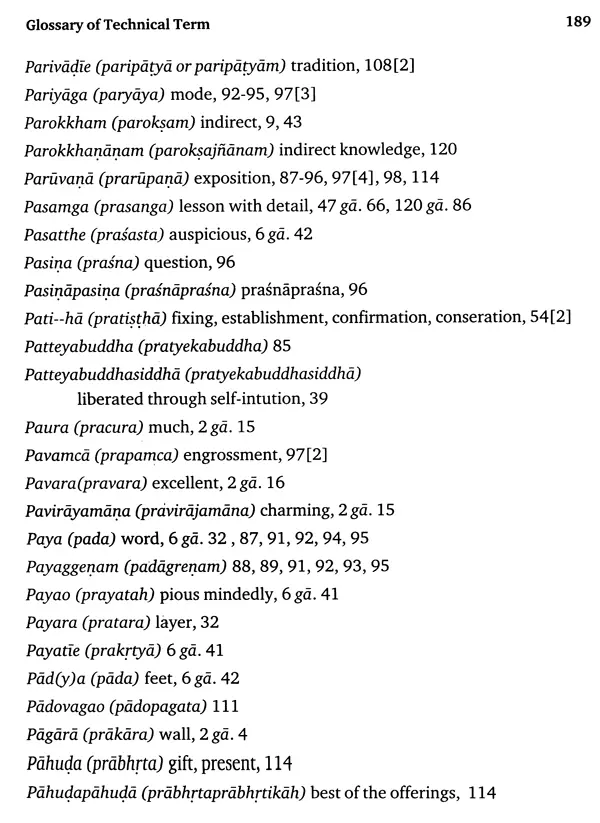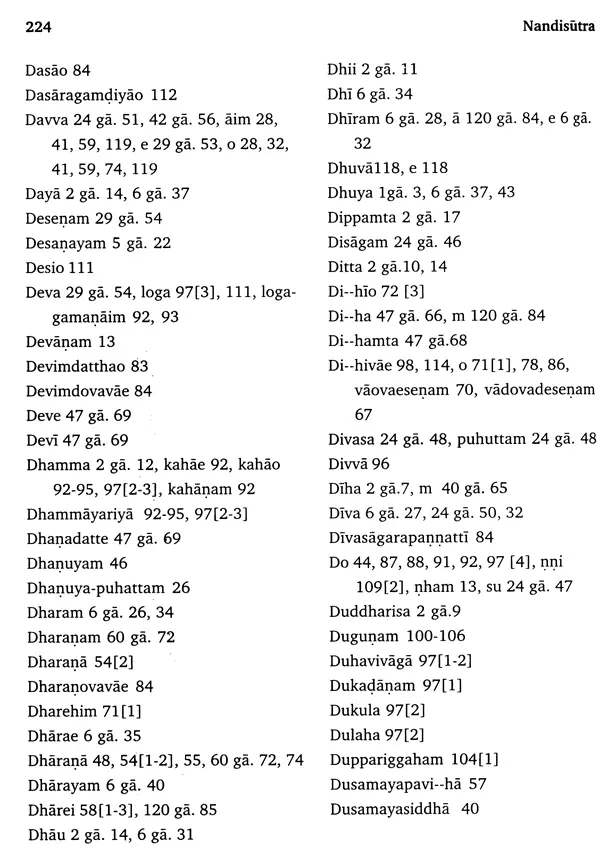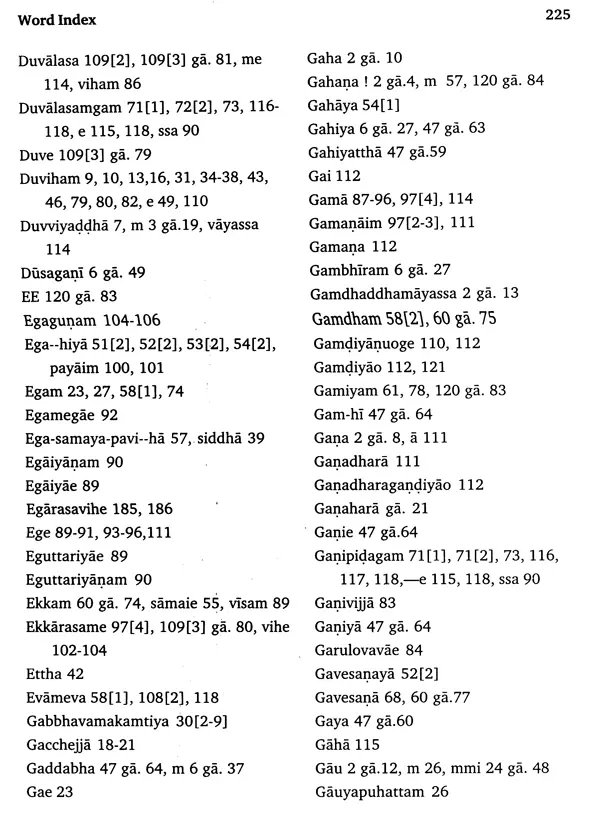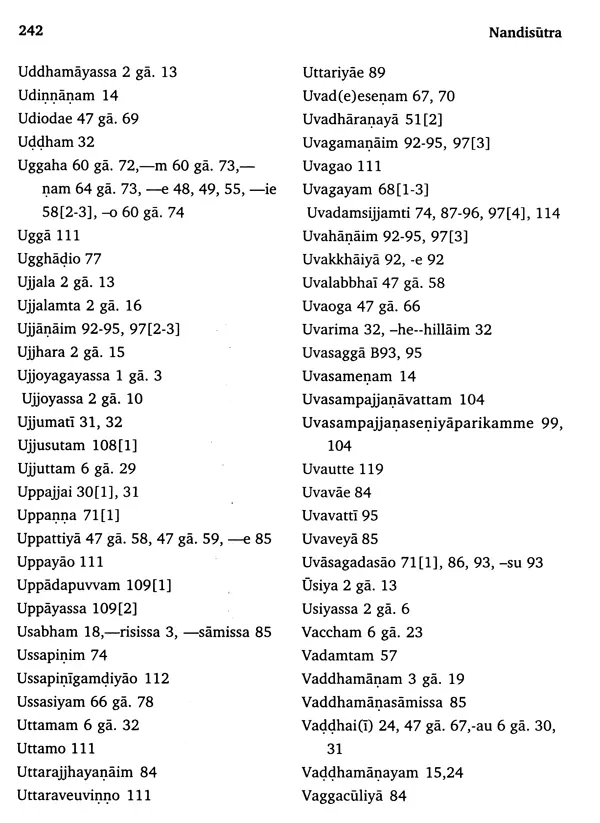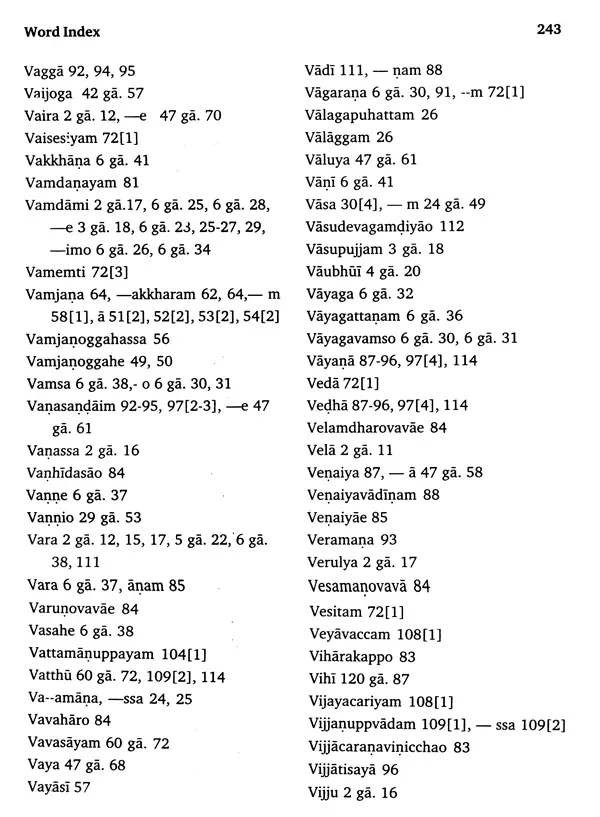
सिरिदेववायगविरइयं नन्दिसुत्तं- Siri Devavayaga Viraiyam Nandisuttam (A Prakrit Jain Canonical Text)
Book Specification
| Item Code: | UAW798 |
| Author: | Ashok Kumar Singh |
| Publisher: | Bhogilal Leherchand Institute of Indology, Delhi |
| Language: | Prakrit Text With Sanskrit and English Translation |
| Edition: | 2022 |
| ISBN: | 9788195708802 |
| Pages: | 252 |
| Cover: | HARDCOVER |
| Other Details | 10.00 X 7.00 inch |
| Weight | 740 gm |
Book Description
The Nandisutram deals extensively with the epistemo logy of the Jain philosophy - the various kinds of knowledge, the sources of acquiring them and the means to check their validity, etc. It also sheds light on the various types of masters and disciples as well as different ways of transmitting the knowledge from the teacher to the taught. Towards the end it also mentions the contents of a number of religio-philosophical works which delve into the different aspects of Jain philosophy and beliefs, especi ally the latter.
This book contains the Prakrit text with English translation, Introduction and three Appendices - Gatha Index, Classified Index of Proper Names, Glossary of Technical Terms, in addition to the Bibliography and Word Index.
He has independently edited eight and co-edited three books. He has participated and presented papers in more than a dozen national and international conferences, of which around 30 have appeared in reputed Journals.
He has been a faculty member of B. L. Institute looking after its teaching and research activities for many years. At present he is working in Pune.
Scholars' appreciation of my English translation of the fourth Anga text Samavayangasutra (B.L. Series No. 20) encouraged me to proceed further and to take up the translation of the Nandisutra. The text with English translation, Introduction and three Appendices - Gatha Index, Classified Index of Proper Names, Glossary of Technical Terms, in addition to the Bibliography and Word Index, form the composite whole of the present edition.
The Introduction, in brief, commences with the meaning of Agama, Sruta and other terms used to denote the sacred literature. The date of composition of Ardhamagadhi canons, subject-matter of Nandisutra, relation between Purva and Dvadasangi, are also dealt herein. The information on the editions of Nandisutra brought out to date is also given here towards the end. The text with variant readings of Mahavira Jaina Vidyalaya, Mumbai edition, published in the Jaina Agama Series, edited by Pujya Muni Punyavijayaji, Pt. Dalsukh Malvania and Pt. Amrit Lal Bhojak, is reproduced in this volume verbatim et litteratim. Word Index in Roman is also based on that edition. For translation, the editions of Madhukar Muni (Byavar), Acarya Atmaramaji, Ludhiana and Ladnun have been utilized.
Etymologically, the term śruta stands in general, for reading, teaching, and preservation of learning by successive and traditional teacher-taught hearings and memorised communications, in olden days. Its derivative meaning referred only the heard words and their meanings but comprehended other methods also, leading to knowledge and ultimately, all the instrumental causes to produce śruta. However, in Jaina tradition, it stands for the knowledge, dealing with the spiritual and moral upliftment of living beings. The term agama, a specific and later form of śruta, denoting form of general knowledge, implies valid and consistent one, imparted by the direct knower.
Besides, śruta and agama, several words are mentioned for scriptures in Jaina texts. Anuyogadvarasutra and Tattvarthadhigamasutra mention ten and eight words, respectively. With three in common, they furnish fifteen (10+8 3) words. The term sastra, also frequently used for scriptures, makes the total sixteen. Sastra connotes all-purpose utilitarian meaning implying: (i) texts containing rules governing the society and individuals and (ii) texts preserving the culture of the community.
**Contents and Sample Pages**
